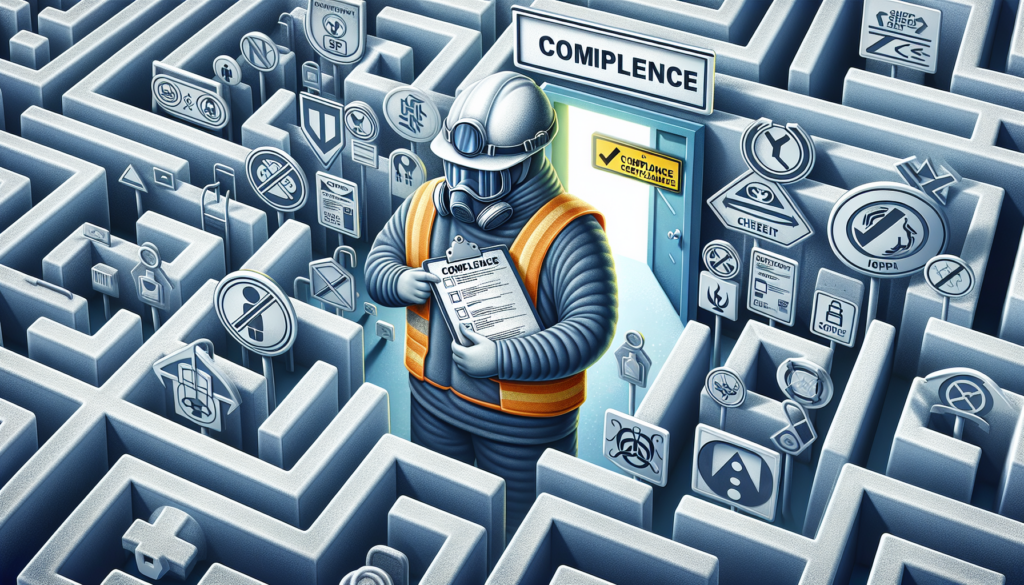Trending Topic: The Impact of Climate Change Regulations on Logistics and Fulfillment
One of the most pressing issues in today’s world is climate change. With extreme weather events becoming more frequent and the effects of global warming becoming increasingly evident, governments around the world are implementing stricter regulations to combat climate change. This has significant implications for the logistics and fulfillment industry, as transportation and warehousing activities are major contributors to greenhouse gas emissions.
As a result, companies in the logistics and fulfillment sector are facing increasing pressure to reduce their carbon footprint and adopt more sustainable practices. This includes investing in electric vehicles, optimizing transportation routes to reduce emissions, and implementing energy-efficient practices in warehouses. By aligning with these regulations and embracing sustainability, businesses can not only reduce their environmental impact but also improve their reputation and attract environmentally conscious customers.
Tips for Maintaining Compliance
1. Stay Informed: Keeping up to date with the latest safety regulations is essential for businesses to ensure compliance. Subscribe to industry newsletters, attend conferences, and regularly check government websites for updates on regulations that may impact your operations.
2. Conduct Regular Audits: Regularly audit your operations to identify any areas where you may be falling short of safety regulations. This could include inspecting equipment for compliance, reviewing employee training records, and assessing your environmental impact.
3. Invest in Training: Ensure that your employees are well-trained on safety regulations and best practices. Provide regular training sessions on topics such as proper handling of hazardous materials, emergency procedures, and workplace safety.
4. Implement Safety Protocols: Develop and implement safety protocols to ensure that your workplace is safe and compliant with regulations. This could include protocols for handling hazardous materials, emergency response plans, and regular safety inspections.
5. Partner with Reliable Suppliers: Choose suppliers that prioritize safety and compliance in their operations. Make sure that they have the necessary certifications and adhere to industry standards to reduce the risk of non-compliance in your supply chain.
6. Embrace Technology: Use technology to streamline compliance processes and improve safety measures in your operations. This could include using tracking software to monitor shipments, implementing automation to reduce human error, and investing in IoT devices to monitor warehouse conditions.
Navigating safety regulations in the logistics and fulfillment industry can be challenging, but by following these tips and best practices, businesses can ensure they maintain compliance and operate safely and efficiently.
FAQs
Q: What are some common safety regulations that businesses in the logistics and fulfillment industry need to comply with?
A: Common safety regulations include OSHA regulations, hazardous materials handling requirements, transportation safety standards, and workplace safety guidelines.
Q: How can businesses ensure they stay up to date with changing safety regulations?
A: Businesses can stay informed by subscribing to industry newsletters, attending conferences, regularly checking government websites, and working with industry associations.
Q: What are some consequences of non-compliance with safety regulations?
A: Non-compliance with safety regulations can result in fines, legal liabilities, reputational damage, and even business closures in severe cases.
In conclusion, navigating safety regulations in the logistics and fulfillment industry is crucial for businesses to operate safely and efficiently. By staying informed, conducting regular audits, investing in training, implementing safety protocols, partnering with reliable suppliers, and embracing technology, businesses can ensure they maintain compliance and stay ahead of the curve. For more information on how Fulfillment Hub USA can help your business navigate safety regulations and optimize your logistics and fulfillment operations, visit https://fulfillmenthubusa.com. You can also visit us at our Miami address: 3450 NW 115th Ave, Miami, FL 33178, United States.
[ad_2]
